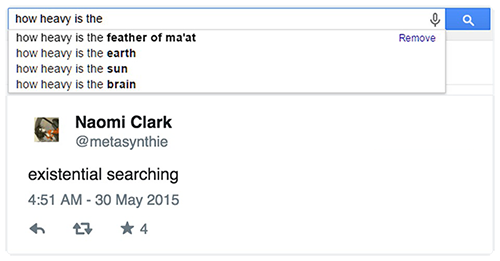internet explorers club | communication through the ages

I've been loving some other newsletters recently, and I'll highlight those in a bit, but in particular I love Deb Chachra's way of posting her location while writing—especially as I've been back and forth across the country for the last 5 months, I love that idea of grounding oneself in that brief moment. So, as it happens, I'm writing from Lopez Island in the San Juan Islands, my ancestral homeland (before my family left in disgrace in the Great Depression, as you do), and the view is beautiful.
But anyway: long reads to begin with because this story is nuts. TL;DR: a huge study about how people respond to canvassers about gay marriage has been proven to be faked. NY Mag has a long, but incredibly thorough overview of the whole story, including the graduate student that found out, but was encouraged not to say anything (!) because it could ruin his career. The guy that lied, Michael LaCour, wrote a long rebuttal, but fails to actually provide any data that helps his case (I've linked to a rebuttal to his rebuttal, because his piece is so couched in academic language that it's nigh unreadable—I can't help but think that's intentional). The Chronicle of Higher Education does a bit of digging into what this means for academia, peer review, etc.

Luke Winkie wrote a piece about World of Warcraft in general, but specifically about people who play hacked servers that remove most of the expansions—returning to a Warcraft of 10 years ago (usually called "Vanilla WoW"). It's nostalgic for me, as I spent a lot of time over the years playing Warcraft, but I suspect it might be an interesting read for non-Warcraft players as well.
On the other hand, Naomi Clark wrote about playing video games and what about it we like, and what we've been told over and over we should like about games (regardless of whether or not that's true). It's first in a series, and I'm eagerly awaiting what's next:
The patterns and process that lead to the outcome or ending of a game are worn into grooves by repeated acts, like leather grown buttery and supple with long use, even as the outcome remains uncertain for competitors, the possibilities of ending unknown to a first-time single player. Genres of games are born out of commonality and repetition of fundamental interactions: do this, like you did in that other game.
The Iceman List is a chronicling of movie antagonists who might have been right all along, starting with Iceman from Top Gun (and actually makes a pretty compelling case for it).

A Glossary of Abbreviations Used by Early-20th-Century Telegraph Operators is exactly as advertised and just fascinating (and bears more than a passing resemblance to text speak). Atlas Obscura also found out that you can still send telegrams today (get ready, everyone), and does a neat overview of telegraphy in general.
Newsletters I'm enjoying: Metafoundry. Everything Changes. This week's work. The Modern Desk. 6, who talked this week about verb endings in other languages that indicate where the speaker heard the information / if information is circumstantial and I can't stop thinking about it.
so say we all,
Emily


